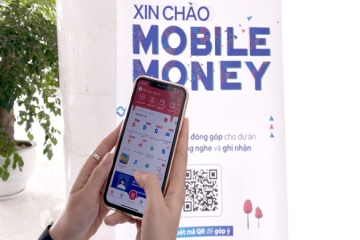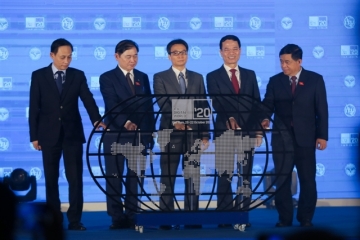Vietnam sees promising 4G future
Speaking at the Vietnam–South Korea LTE Vision Workshop 2016 held in Hanoi yesterday, Tam said that under the national broadband plan, the most advanced broadband technology, such as long-term evolution (LTE), has received attention from both management agencies and telecom providers.
The ministry has allowed businesses to carry out pilot 4G LTE programs since 2010. Based upon market demands, together with technologies, equipment and other conditions, Vietnam has granted licenses for the pilot LTE and LTE-Adv networks for some telecom companies affiliated with Viettel and Vinaphone in various localities.
LTE is one of the latest mobile telecom technologies, called 4th Generation (4G), providing end-users with mobile data service that is 10 times faster than 3G’s maximum speed. This is equivalent to downloading a multimedia file, such as a 100 megabyte music video, to a user’s LTE smart-phone in three seconds in optimal conditions.

Telecom providers are expected to complete their investment and business plans for 4G networks this year. The ministry is also expected to complete management policies to ensure healthy competition and sustainable development in the broadband market.
“I believe that this year will be a good start for LTE, and the technology will be strongly developed by next year,” he said.
Doo Soo Park, global marketing and sales general director of Samsung Networks, said by the end of 2015 there were 480 LTE networks in 157 countries and territories with over one billion users.
In Asia, LTE has been one of the most popular technologies, with South Korea, China, Singapore, Malaysia, Indonesia, Philippines and Thailand offering commercial LTE services.
Park said that Vietnam is been a potential target for LTE development, as telecom providers have considerable experience from operating pilot 4G LTE networks.
He noted that the most important factor was to build high speed LTE networks to catch up with the development of LTE-Advanced Pro, which provides continuous broadband, high quality calls and quick data transfers to end-users.
“We recommend the building of LTE overlays, which are separated from 2G and 3G networks, to help implementation move along more quickly and conveniently,” he said, adding that Samsung has striven to jointly participate in the pilot 4G LTE program in Vietnam.
“We want to become a long-term strategic partner when the 4G LTE network is introduced into Vietnam,” he noted.
Meanwhile, Choi Yang-hee, Minister of Science, ICT and Future Planning, said South Korean businesses are ready to share their experiences in 4G LTE development, as well as strengthen relationships between the two countries to support Vietnam in becoming a strong ICT country.
One of the key challenges put forward by the Korean delegation was managing the revolutionary growth of mobile data traffic. For example, about 75 per cent of total mobile network traffic was generated by voice in 2009, but just three years after the LTE launch, mobile data traffic has increased to take up to 99 per cent of total network traffic in 2014.
Vietnamnet.vn




